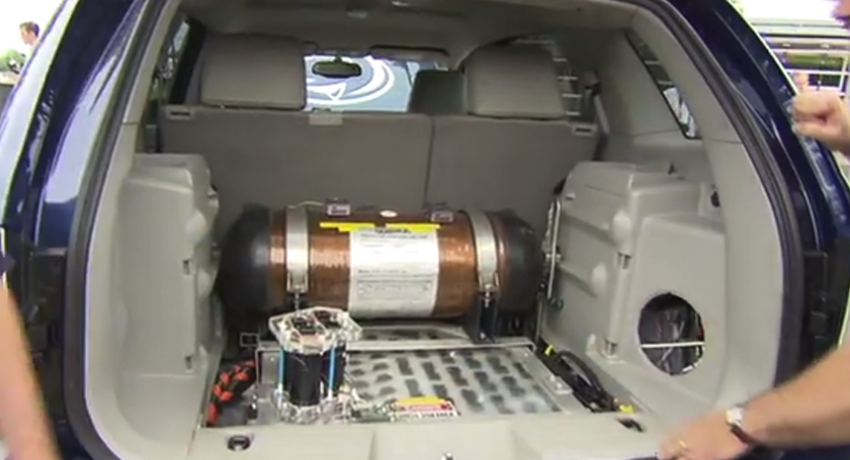Chung's recent research on superabsorbent polymers, which shows potential to aid in oil spill recovery and cleanup, may also be a storage vehicle for hydrogen fuel cells.
Finding practical hydrogen storage technologies for vehicles powered by fuel cells is the focus of a $682,000 grant from the U.S. Department of Energy, awarded to Mike Chung, professor of materials science and engineering, Penn State.
Chung's recent research on superabsorbent polymers, which shows potential to aid in oil spill recovery and cleanup, may also be a storage vehicle for hydrogen fuel cells.
"My group developed hydrocarbon polymers with a high oil absorption capacity," he said. "The polymers provide an efficient way to separate and store the hydrocarbon molecules — oils — from water during spills."
He hopes to apply similar technology to create a hydrogen adsorbent. Adsorption occurs when thin layers of molecules adhere to the surface of solids or liquids. Chung said the difficulties faced in storing the hydrogen could be overcome with the adsorbent, which would condense the gas into supercritical liquid form. A liquid turns supercritical at the point when distinct liquid and gas phases do not exist.
Hydrogen can then be stored in pores within the adsorbent at ambient temperature and low-pressure conditions. The pores naturally form in the spaces between the polymer's molecules. This would allow more hydrogen to be stored without having to increase the size of the tank.
"The polymer would act as a 'hydrogen sponge' in the storage tanks," Chung said.
His research could be critical given the challenges that researchers face in storing and using hydrogen fuel safely and efficiently.
"We face many difficulties with hydrogen storage technology," he said. "The technology isn't as well established yet as other alternative fuel sources, such as solar and wind power."
Hydrogen gas comes from many sources, including coal gasification and electrolysis. Gasification uses high pressures, temperatures, oxygen and steam to separate the hydrogen from the coal. Electrolysis uses electricity to split water into hydrogen and oxygen.
Read the full news story here:
http://news.psu.edu/story/471874/2017/06/15/research/grant-focuses-hydrogen-s...

